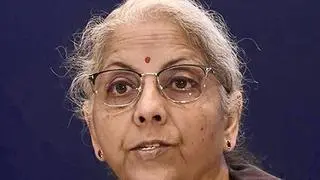US President Donald Trump’s decision to temporarily suspend immigration could further reduce Indian IT services companies’ reliance on H1-B visas.
While tech majors such as TCS and Infosys are increasingly hiring locally in the US and Europe, changes in delivery models following the Covid-19 pandemic could bring down the need for onsite deployment of Indian techies.
Trump, in a tweet, said he intends to sign an executive order to temporarily suspend immigration “in light of the attack from the Invisible Enemy, as well as the need to protect the jobs of our great American Citizens.”
In the likelihood of immigration suspension, companies may not opt for H1-B visas as the Covid-19 pandemic has caused new headaches. TCS is already working on a delivery model that requires only 25 per cent of workforce to be present in an office. If 75 per cent of techies can do their work from outside office, it would not matter if they are in the US or in India.
“My estimate is that demand for onsite work (which requires H1-B) will come down by 50 per cent once things normalise,” said Harish HV, Managing Partner, ECube Investment Advisors.
While H1-B is a non-immigrant visa, Indians as well as others have been taking this route to get US citizenship. Indian nationals are the biggest beneficiaries of the H-1B visas, which the US Centre for USCIS issues to get “qualified” professionals into the US.
“Trump’s decision, albeit temporary, will have significant implications right from people whose citizenship is under process to H1-B renewals,” said a US immigration lawyer whose clients include Infosys, Mphasis and other tech companies. This development comes in the wake of US Citizenship and Immigration Services (USCIS) which, last week, gave its nod to extend H1-B visas which have expired or set to expire.
For the fiscal 2020-21, the US received around 275,000 fresh H1-B visa requests, of which 67 per cent were from India, US government data stated. The mandate is for granting 85,000 visas for immigrants.
According to industry estimates, there are around three million H1-B visa holders. While there are no definitive numbers on how many H1-B visa holders apply for citizenship, some lawyers peg that 24 per cent of H1-B visa holders tend to get green cards every year.
Indian software services companies have had it tough in the last few years. Visa rejection rates were around 30 per cent in 2019 and only two Indian companies were among the top ten visa recipients. Companies that BusinessLine reached out to declined to comment on Trump’s tweet since the final policy document has not been released by the US Government.
H1-B visas have been under the lens by US authorities as visa abuse cases have been reported and lawsuits filed against Indian companies, alleging that people of South Asian origin are hired to displace American workers.
On their part, Indian companies have started to hire in the US. However, such restrictions in the current scenario of weak revenue and higher local employees would have an impact in the short term, said an analyst from a brokerage house who did not wish to be quoted.
Shares of TCS, Infosys, Wipro, HCL Tech and Tech Mahindra all closed lower than Monday’s close after Trump tweeted.








Comments
Comments have to be in English, and in full sentences. They cannot be abusive or personal. Please abide by our community guidelines for posting your comments.
We have migrated to a new commenting platform. If you are already a registered user of TheHindu Businessline and logged in, you may continue to engage with our articles. If you do not have an account please register and login to post comments. Users can access their older comments by logging into their accounts on Vuukle.